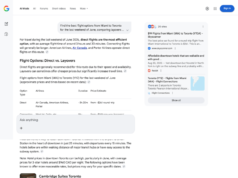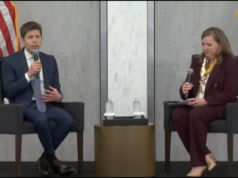
Prenda Law — a firm notorious for suing private individuals for illegally downloading copyrighted pornography — made and uploaded porn itself in a scheme to extort millions of dollars from people too embarrassed to fight back, according to a guilty plea entered by one of the firm’s owners.
John Steele, 45 — who, along with Paul Hansmeier, controlled Prenda Law — acknowledged in documents filed Monday in U.S. District Court in Minneapolis that from 2011 to 2014, the firm schemed to rake in about $6 million by threatening copyright lawsuits against people who allegedly downloaded porn from file-sharing websites like The Pirate Bay.
Steele admitted that he and Hansmeier created a series of fake companies to obtain the copyrights to pornographic movies from other companies and to record and copyright their own pornographic movies specifically to lure people to download them.
Steele pleaded guilty Monday to all seven counts of conspiracy to commit mail fraud and wire fraud and conspiracy to commit money laundering included in an indictment filed in December. Sentencing is pending, and his attorney, Mark Eiglarsh, told NBC News on Wednesday night that his client is cooperating fully with federal prosecutors.
The case against Hansmeier, 35, whose Minnesota legal license was suspended last year, remains pending. His wife, also a lawyer, told NBC News at the time that they would not comment on the charges in any way.
Hansmeier and Steele are infamous in the technology world as the ultimate “copyright trolls” — lawyers whose business is to scour the internet to track down computers that download pornographic videos and then force internet service providers to identify the computers’ owners so they can shame those people into writing settlement checks.
In a typical letter from the law firm obtained in 2011 by NBC News and verified at the time by Steele, the lawyers — then practicing in Chicago under the name Steele-Hansmeier PLLC — suggests that the respondent write a $2,900 check to “avoid becoming a named Defendant in our lawsuit.”
The letter conveniently includes a Frequently Asked Questions attachment reassuring respondents that “you will remain anonymous if you settle.”
Read the 2011 Pornography Copyright Letter (.PDF)
In a 2011 interview with NBC News, Steele said he was fine with his depiction as a villain. He even acknowledged that the litigation letters were written to “scare people” — not primarily into writing checks, but to stop them from “stealing our clients’ content.”
2011: Porn Piracy Wars Get Personal
Since then, however, “some choices were made after that point that brought us to a different place,” Eiglarsh told NBC News on Wednesday night.
In the plea agreement, for example, Steele admitted this week that some of the firm’s “clients” were Steele and Hansmeier themselves. They committed fraud, according to the indictment, by lying to state and federal judges when they went to court to subpoena ISPs to turn over customers’ names.
And in an offshoot of the original scheme, the defendants created a company called Guava so they could claim that its computers had been hacked — giving them a new reason to go to court to demand the names behind numerical internet addresses and file more lawsuits, according to the indictment.
Eiglarsh said Steele has had no direct contact with Hansmeier since the charges were filed. Now, he’s “working for Team USA” and “will be available to testify” against Hansmeier, Eiglarsh said.






